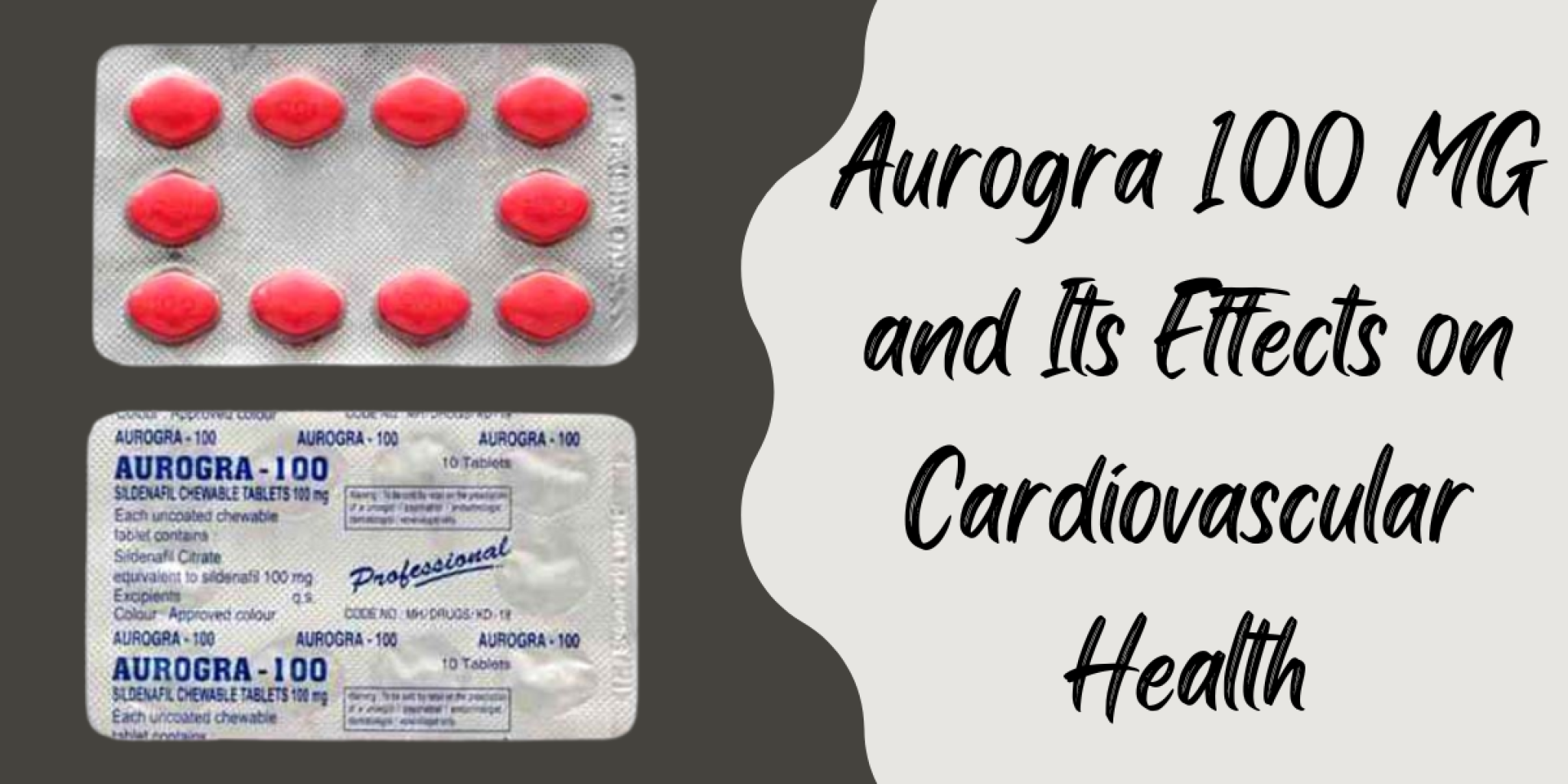Aurogra 100 MG and Its Effects on Cardiovascular Health
 0
0
Posted: Thu June 26 10:33 AM IST
Business: My Business Name
Tags: aurogra 100 mg

Erectile dysfunction (ED) is not only a condition that affects intimacy but can also be a signal of deeper cardiovascular issues. Aurogra 100 , a popular ED medication containing Sildenafil Citrate, has brought relief to millions of men. While it’s known for its effectiveness in enhancing sexual performance, understanding its impact on cardiovascular health is crucial, especially for individuals with heart-related concerns.
What Is Aurogra 100 MG?
Aurogra 100 MG is a prescription medication used to treat erectile dysfunction in men. It contains Sildenafil Citrate, a PDE5 inhibitor, which increases blood flow to the penis by relaxing the muscles in the blood vessel walls. It works by enhancing the effect of nitric oxide, a natural chemical the body produces to dilate blood vessels and improve circulation. While its primary use is to restore sexual function, Aurogra also has physiological effects beyond the genital area, particularly on the cardiovascular system.
Understanding Cardiovascular Health
Cardiovascular health refers to the proper functioning of the heart and blood vessels. Conditions like high blood pressure, heart disease, atherosclerosis (narrowing of arteries), and stroke are indicators of compromised cardiovascular health. Interestingly, erectile dysfunction and cardiovascular issues often go hand in hand. ED can be one of the first signs of heart problems, as it often results from poor blood flow, which may also affect the heart.
How Aurogra Affects the Cardiovascular System
Aurogra’s active ingredient, Sildenafil, promotes vasodilation, which means it widens the blood vessels. This mechanism, while intended to improve blood flow to the penis, also affects systemic circulation. By lowering pulmonary and systemic vascular resistance, Sildenafil can cause a temporary drop in blood pressure. For healthy individuals, this change is usually mild and well tolerated. However, for those with pre-existing cardiovascular conditions, it can pose a risk.
Sildenafil also interacts with the nitric oxide-cGMP pathway, which plays a vital role in cardiovascular regulation. In some cases, especially under medical supervision, this effect can be beneficial—such as in the treatment of pulmonary arterial hypertension (PAH).
Aurogra in Patients with Heart Conditions
For individuals with high blood pressure, angina, or arrhythmias, using Aurogra 100 MG requires extra caution. Those who are already on medications like nitrates or alpha-blockers may experience a dangerous drop in blood pressure when combining them with Sildenafil. Patients with congestive heart failure or a recent history of heart attack or stroke should also avoid taking ED medications unless cleared by a cardiologist.
That said, not all heart conditions automatically disqualify someone from using Aurogra. With proper assessment and monitoring, some patients may safely benefit from its use.
Potential Risks and Side Effects
While Aurogra is generally safe when used correctly, it may lead to adverse cardiovascular events, especially if taken without medical supervision. Risks include:
- Sudden drop in blood pressure
- Rapid heartbeat or palpitations
- Chest pain
- Dizziness or fainting
- Rarely, heart attack or stroke in predisposed individuals
Immediate medical help should be sought if a user experiences severe side effects, particularly chest pain, breathlessness, or fainting.
Positive Impacts on Cardiovascular Health
Interestingly, there’s emerging evidence that medications like Sildenafil may improve endothelial function, which can be beneficial for vascular health. Improved circulation and reduced arterial stiffness are potential secondary benefits. In patients with pulmonary hypertension, Sildenafil has been used successfully under supervision to reduce pressure in the lungs and improve heart function.
Moreover, addressing erectile dysfunction can boost mental well-being and reduce stress—both important contributors to a healthy heart.
Guidelines for Safe Use
To use Aurogra 100 MG safely, especially if you have a heart condition:
- Consult your doctor first, especially a cardiologist if you have known heart disease.
- Start with a lower dose if needed and adjust gradually.
- Avoid mixing with alcohol or nitrates.
- Schedule regular cardiovascular checkups to monitor any changes.
- Combine Aurogra use with lifestyle changes such as healthy eating, regular exercise, and stress management.
Expert Insights and Clinical Research
Recent studies have shown that, in moderate doses, Sildenafil does not significantly increase the risk of heart complications in most men. Cardiologists often consider ED medications safe when heart conditions are stable and well-managed. However, patient-specific factors must always guide the decision.
Conclusion
Aurogra 100 MG can be a safe and effective treatment for erectile dysfunction, even for individuals with certain heart conditions—provided it's used with proper medical supervision. Understanding its effects on cardiovascular health empowers users to make informed decisions and reduce potential risks.
Comments
Please login above to comment.
